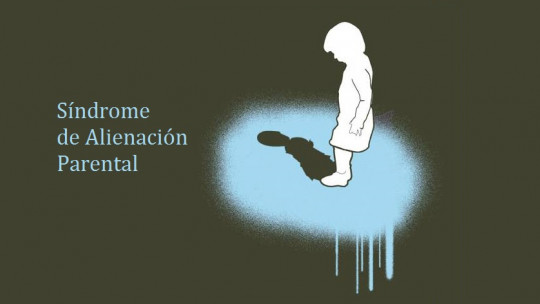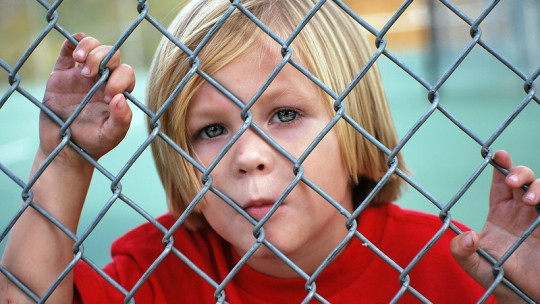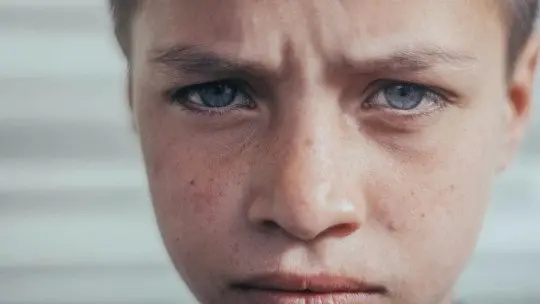
Every boy and girl needs parents to grow up well. You may grow up in a family with a mom and a dad or there may be two fathers or two mothers. It may also happen that he only has one parent to take care of him. The important thing is the love and care that their reference adults give them.
Now, regardless of the type of family, the fact that one of the parents leaves the family unit or does not take care of their own children is something that will have a very negative impact on the mental health of the children.
Next We will see the consequences of paternal abandonment, understood as both the father and the mother and what it can mean when the infant reaches adulthood.
Main consequences of parental abandonment
All children need the protection of their parents to be able to develop fully. Although it is traditional to have a father and a mother, science has been able to show that being the child of a homosexual couple or being the child of a single mother or father does not harm the mental health of children. The myth that a male model, represented in the father, and a female model, represented in the mother, is needed as protective factors against psychopathology is increasingly overcome.
However, what does affect the mental health of the boy or girl is being born into a family with two parents, regardless of their gender, and when one of them, halfway through the child’s growth, leaves the family unit. . It may also happen that the father or mother does not pay attention to their children, and that, although they are still in the family nucleus, their presence is rather virtual. It may happen that dad or mom comes in too tired from work, has no interest in dedicating themselves to their children, and leaves the work to the other parent.
This lack of interest in the child, whether because he is no longer part of the family or because he is too busy with other tasks, is parental abandonment. We should not think that with the word paternal we refer only to “the father”, but to any parent. As they are figures of protection and attachment, If parents ignore the child who trusted to be cared for by them, they cause very serious psychological damage which can condition their growth and adult life.
The family environment and its stability play a fundamental role in the emotional development of the infant, in addition to facilitating their psychological maturation. In the first years of life, the infant needs routine regarding parental relationships If he or she was born in a family with two parents, it will be very disruptive for the child to see how one of them moves away, whether abruptly or little by little. The effects of the first contacts with dad or mom are very strong on the child’s mind, so the disappearance of one of those figures can be really harmful.
Once all this is understood, we can understand what the main consequences of parental abandonment in childhood are.
1. Not feeling loved
It is very common among children who have suffered parental abandonment to not feel loved If the abandonment has been because father or mother is almost never at home, the child may interpret it as not being home because he is not interested in spending time with his child. This makes them feel that they are not enough for their own parents, and that they are worthless.
Another situation that may occur is that the parent has abandoned the family unit as a result of a divorce process. If the child does not understand the situation well or what has happened has not been explained to her, adapted to her level, she may interpret it as her father or mother having left because she did not want to see him anymore.
It may happen that, in the event of a separation or divorce, the parent who has custody has a new partner. Always depending on the relationship that this new person has with the child, it can serve as a protective factor, given that this new parent can very beneficially replace the figure of the father who has left. Likewise, having a father or mother leave is a very difficult void to fill.
2. Excessive dependency
In families with two parents, when one of them leaves the family unit, the parent is left solely responsible for caring for the child. The child, seeing that only that father or mother is left, becomes excessively attached to him or her, creating a relationship of excessive dependency
It is normal to expect that during the first weeks after a parental separation, the child will take refuge in the figure of the father who has remained. The problem is when, after a while, you don’t let go of it, and you don’t dare to discover the world beyond the protection that mom or dad gives you.
This will affect their social development, since they will not interact as much with their schoolmates or neighbors. She will be afraid that if she separates from her father or mother for a moment, he or she will do the same thing that the other parent did. So that, the child will miss out on such enriching experiences during childhood like playing with other children, going camping, hiking, having extracurricular activities…
3. Fear of developing a deep attachment
It may happen that after abandonment, the child is afraid of establishing deep relationships, especially with the new partner of the father who is now taking care of him. This is due to He fears that the same thing that happened to the father who abandoned them could happen to him: If you establish a deep attachment with him and then he leaves too, the child will be very damaged.
4. School instability
Although this does not always have to happen, it has been seen that children who have experienced parental abandonment, whether the father has abandoned the family unit or simply ignores it, have worse academic performance.
It often happens that the parent who does spend time with them is too overwhelmed to help with homework or any academic problem they have while the other simply does not pay attention to what happens to him at school.
5. Aggressive behavior
Parental abandonment can cause the boy or girl to behave in a very hostile way. This may be because he is angry with what he has had to live through, frustrated by his father’s departure, or because he becomes defensive thinking that his other father is going to do the same thing to him sooner or later. Also You can pay it off with your father or mother’s new partner, seeing him or her as a substitute and thinking that it is the reason why he or she does not return
But the most common cause of this aggressive behavior is that he thinks it is his fault. He feels very angry with himself because he thinks he or she did something wrong, which precipitated his father’s abandonment. Since he does not have the linguistic capacity to explain it nor to ask his other parent what really happened, the situation overwhelms him and he ends up taking it out on anyone or in the form of tantrums.
Consequences in adulthood
Although in the first years after the parent’s departure there are many consequences, when adulthood comes the consequences may be worse if they have not received psychological therapy or have not understood why their father or mother abandoned them.
1. Emotional intelligence problems
They have problems identifying their emotions and those of others They get stressed easily and don’t know how to explain what they feel. They have problems understanding what others feel, and their emotional self-regulation is poor or non-existent.
2. Little psychological flexibility
They take changes badly, such as changing jobs, housing, cities… They are behaviorally inflexible, seeing changes in their routine as something truly unapproachable This causes them a lot of suffering and anxiety.
3. Greater risk of addictions
Although this does not always have to be the case, it has been seen that people who have experienced severe parental abandonment take refuge in addictive behaviors. Whether due to ingestion of drugs such as alcohol, tobacco or illegal drugs, or through obsessive behaviors such as addiction to sex, pornography or video games, all these types of psychological problems are common in people who are victims of this type of abandonment. .
4. Passivity in relationships
For fear that their friends, family or important people will also abandon them, people who are victims of parental abandonment in childhood can become excessively complacent, to a pathological point. They can even enable truly toxic behaviors who hurt them, but out of fear of experiencing the departure of someone they love again, they even tolerate abuse and disrespect.
5. Greater psychopathological risk
Paternal abandonment in childhood, if there has not been adequate intervention, It can be a risk factor for a child’s mental health once he or she becomes an adult Mood disorders such as depression, anxiety disorders or even personality disorders are psychopathological conditions that can occur in this type of population.
It is for this reason that it is so important, on the part of the father who has custody of the child or who spends a lot of time with him, to ensure that he receives proper psychological care. Thus, thanks to therapy, the boy or girl will learn strategies to know how to manage everything that he or she is experiencing, and prevent him or her from manifesting even more serious consequences once he or she becomes an adult than those he or she can experience in the short term.
Final reflection
It is clear that parental abandonment in childhood implies serious consequences for the child’s health if the situation is not properly managed. Although each family is different and may have effective strategies to prevent the child from suffering the consequences after a divorce, breakup or lack of interest on the part of the father, It is very important to go to psychological therapy to ensure that the consequences explained do not occur throughout this article.
Likewise, we must understand that just because a father or mother is missing, all the problems that we have explained do not necessarily occur. Science has shown that two parents are not necessary to fully develop, although the fact that one disappears when the child is growing can harm him. Likewise, it is important to understand that abandonment can occur without the father or mother having left the family unit, so it is essential that, if there is still time, we spend more time with our children.








